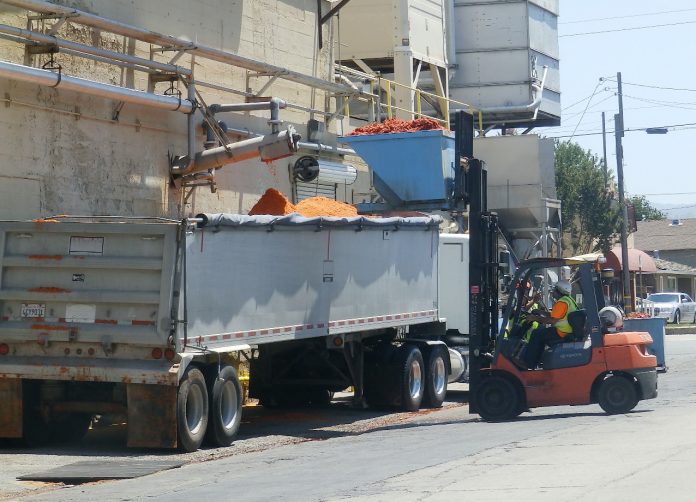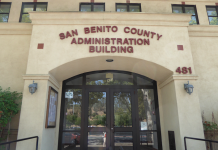
A state water board issued Hollister a notice of violation last week related to two 2016 sewage spills discharged into the San Benito River, according to a document obtained by the Free Lance.
A Central Coast Regional Water Quality Control Board document dated Jan. 13 of this year states the first spill occurred on or around July 16 due to a slide-gate valve failure. The second spill occurred on Sept. 6 at the same location due to the failure of the same slide-gate valve that the city had plugged as a repair after the first spill.
Those spills came nearly 15 years after the city’s sewer spill into the San Benito River that led to the state forcing Hollister to build a new treatment plant while shutting down all new building until its completion.
In a phone interview with the Free Lance on Tuesday morning, Mayor Ignacio Velazquez said he’d received some of the information.
“I need to look into it, find out what happened and who we hold accountable for it,” Velazquez said.
City Manager Bill Avera and Community Services Director Mike Chambless were not immediately available for comments.
The document states that the July 16 spill had a total spill volume of 600,000 gallons. The Sept. 6 spill had a total spill volume of 338,524. Portions of each spill discharged into the San Benito River.
Potential enforcement actions for multiple alleged violations vary depending on the Water Code section, but include possible fines of $1,000 per day, $5,000 per day, $15,000 per day and/or $25,000 per day.
According to the notice of violation, the city initially reported that the slide-gate (diversion valve) on the sanitary sewer line between San Benito Foods and the wastewater treatment plant was left open due to operator error and diverted tomato processing wastewater away from the treatment plant and to the Apricot Lane storm sewer, a downstream open drainage ditch, and the San Benito River. The city later reported that the spill occurred because the diversion valve had deteriorated and subsequently failed.
The document states water board staff issued the notice of violation and requirement of a technical report for the following reasons:
• Thoroughly investigate these incidents.
• Characterize circumstances related to the overflows and odors.
• Assess the city’s compliance with applicable regulations.
• Determine the severity of the potential water quality and public health problems caused by the odors and discharges.
• Determine whether the city has taken all appropriate corrective actions needed to prevent similar future odors and overflows.
Due to odor complaints around the time of the July spill, the document states the odor characteristics match the definition of nuisance pursuant to California Water Code section 13050(m) and represent violations of SSS Order Prohibition C.2 for at least five days. The document also notes that the discharges to the San Benito River are violations of SSS Order Prohibition C.1 from July 16 through Aug. 11 and on Sept. 6.
Additionally, the notice of violation states that unauthorized waste discharges to waters of the United States violate federal Clean Water Act section 301, which prohibits all discharges to such waters except those authorized by a National Pollutant Discharge Elimination System permit.
Other violations noted in the document include the city’s failure to report the July 16 spill upon discovery to the San Benito County Environmental Health Department and to the Office of Emergency Services.
With the new sewer spills, it dredges up memories of the city’s massive problems with a 2002 sewer spill that led to a building shutdown.
Back in May 2002, the city dealt with a 15 million-gallon wastewater spill that went into the San Benito River. Hollister faced a $1.2 million fine from the Regional Water Quality Control Board, as well as a complete moratorium on all construction for more than six years. At the time, the spill also postponed a new freshman campus at San Benito High School and a second city fire station.
The city is still recovering from the moratorium, which affected homes, industrial jobs and commercial development.
The water board requires submission of information, including a technical report, by Feb. 27.
Look back for more on this breaking story.







